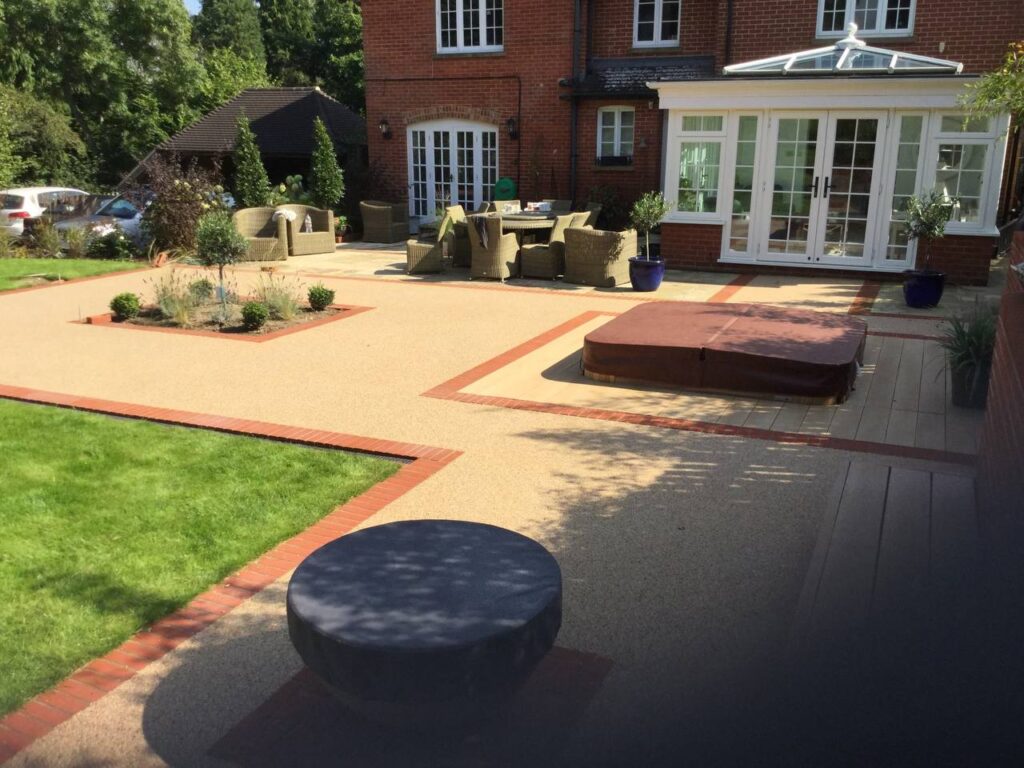When to Resurface Your Driveway: A Guide for Homeowners
As a homeowner, your driveway is an essential part of your property’s exterior. It not only provides a functional surface for parking but also contributes to the overall curb appeal of your home. Over time, however, driveways can experience wear and tear due to traffic, weather, and general use. Understanding when it’s time to resurface your driveway can help you maintain its appearance, functionality, and longevity.
Signs That Indicate It’s Time to Resurface
1. Visible Cracks and Damage
One of the most obvious signs that your driveway needs resurfacing is the appearance of cracks, holes, or large chips. While small cracks can be repaired with patching material, extensive cracking can compromise the structural integrity of the surface. If the damage is widespread and affects a large portion of the driveway, resurfacing is the best solution to restore the surface to its original condition.
2. Potholes and Uneven Surfaces
Over time, potholes can develop in your driveway, particularly if the surface has been exposed to extreme weather conditions. These holes can become a safety hazard for vehicles and pedestrians. Uneven surfaces, where parts of the driveway have sunken or shifted, can also cause drainage problems and lead to further damage. Resurfacing will smooth out the surface and correct any uneven areas, ensuring a safer, more stable surface.
3. Faded or Stained Appearance
As the years go by, the colour and texture of your driveway can begin to fade due to exposure to the sun, rain, and other elements. Staining from oil, rust, and other substances can also be difficult to remove with cleaning alone. If your driveway looks tired, faded, or stained despite cleaning efforts, resurfacing will restore its appearance and give it a fresh, like-new look.
4. Poor Drainage
A driveway that is not draining properly can lead to puddles or pooling water, which can cause long-term damage to the surface. If water collects on the surface and doesn’t flow towards the drainage areas, it may indicate that your driveway’s slope or surface has shifted. Resurfacing your driveway with proper grading can resolve these issues, ensuring that water flows correctly and that the surface remains dry and stable.
5. Age of the Driveway
Even if your driveway appears to be in good condition, age can still take its toll. Asphalt and tarmac driveways typically last between 15 and 20 years, depending on the level of care and maintenance. If your driveway is reaching or surpassing this age, it may be time to consider resurfacing to maintain its structural integrity and visual appeal.
Benefits of Resurfacing Your Driveway
1. Enhanced Curb Appeal
Resurfacing your driveway can significantly improve the overall look of your property. A smooth, freshly resurfaced driveway enhances the appearance of your home, increasing its value and appeal. If you’re planning to sell your property, a well-maintained driveway can make a positive first impression on potential buyers.
2. Cost-Effective Solution
Resurfacing your driveway is often more cost-effective than completely replacing it. While the cost of a full replacement can be higher, resurfacing involves applying a new layer of material over the existing surface, which is a more affordable option for homeowners looking to restore their driveway’s functionality and appearance without the need for an entirely new installation.
3. Increased Longevity
Resurfacing helps extend the lifespan of your driveway by addressing issues such as cracks, holes, and uneven surfaces. With proper resurfacing, your driveway will continue to serve you for many more years. This proactive maintenance reduces the need for costly repairs in the future.
4. Improved Safety
A resurfaced driveway provides a smoother, more even surface that is safer for both pedestrians and vehicles. By filling in cracks, potholes, and low spots, resurfacing reduces the risk of accidents and injuries. A properly graded driveway also improves drainage, reducing the likelihood of puddles and ice patches forming during the colder months.
When to Resurface vs. Replace
While resurfacing is an excellent option for many driveways, there are situations where a complete replacement may be necessary. If your driveway has severe structural issues, deep-rooted cracks, or significant subsurface damage, resurfacing may not provide a long-term solution. In these cases, it’s worth considering a full replacement to ensure the surface is stable and durable.
A professional driveway contractor can help you assess the condition of your driveway and determine whether resurfacing or replacement is the best choice.
Conclusion: Why Resurfacing Is the Right Choice
If your driveway shows signs of damage or age but still maintains a solid foundation, resurfacing is an excellent solution that can restore its appearance, improve its functionality, and extend its lifespan. By addressing issues such as cracks, fading, drainage problems, and potholes, resurfacing offers a cost-effective way to rejuvenate your driveway without the expense of a full replacement.
At Tenterden Driveways, we specialise in driveway resurfacing and repairs. Our team of experienced professionals is committed to providing high-quality, affordable solutions that improve the look and durability of your driveway. Contact us today to schedule a consultation and discover how resurfacing can benefit your home or business.
Call us on: 01580 239 596.
Click here to find out more about Tenterden Driveways
Click here to complete our contact form and see how we can help with your driveway needs.

